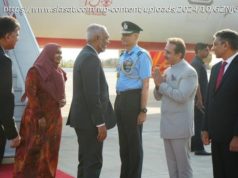The United States and China are currently in an untenable situation of tension that does not benefit either nation and the stakes could not be higher.
As millions of fathers celebrate Father’s day throughout America on June 18th, the duty of one’s nation will preclude Secretary of State Anthony Blinken, a father of two, from celebrating at home as he arrived in Beijing to manage bilateral relations between the two most important economies of the world. The United States and China are currently in an untenable situation of tension that does not benefit either nation and the stakes could not be higher. Close calls involving military vessels, airplanes, and a lack of collaboration on critical issues such as climate change underscore just a few of the critical transnational issues that have much broader implications. However, one area in which both countries seek to maintain pragmatic relations is on economic matters. While geopolitical tensions have escalated, bilateral trade has continued between the US and China and disruptions can have dire consequences for regional and global economies and supply chains.
Yet a wide gap remains in resolving crucial issues. Moreover, a lack of consistent communication between the upper echelon of the two governments leads to a scarcity of opportunities to improve relations. This leads to the significance of Blinken’s official visit to Beijing. Kurt Campbell, the top Asia expert at the National Security Council said, “intense competition requires intense diplomacy if we’re going to manage tensions.”
Secretary Blinken was initially slated to visit Beijing in February of this year; however, the infamous balloon incident made the trip impossible. This incident involved a Chinese spy balloon discovered over Montana. Regarding the spy balloon, the Pentagon stated it had “very high confidence” that it was sent to gather sensitive information from the U.S. The situation caused an outcry amongst the American public and elected officials, making a trip to China at that time by Secretary Blinken untenable.
Since then, although the U.S. has maintained perceived aggressive economic policies, it has also recognized a necessity to decrease tensions with China. Hence, the change in terminology from selective decoupling to de-risking. Selective decoupling, a process first begun under President Trump, was perceived as a hardline policy questioned by many academics and business moguls alike.






